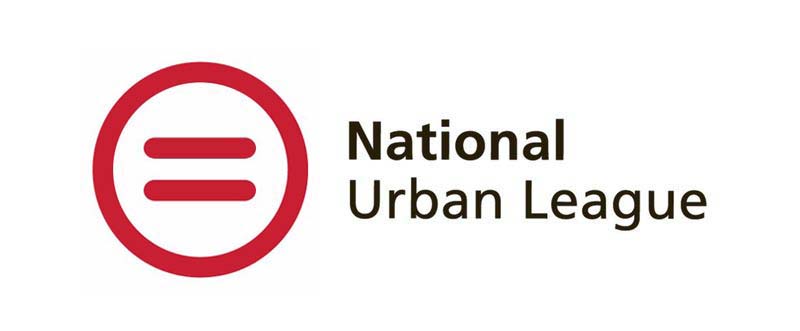After your final interview, you cross your fingers, hold your breath, and hope you’ll receive good news. But despite all of your preparation and hard work, the company has “decided to go with another candidate.“
Sigh. It’s tough to come so close and not get the job. But you may be able to make lemonade out of these lemons. How? By asking the interviewer for feedback.
Though there are no guarantees, how you ask for feedback after a job rejection can increase the chances you’ll receive useful, actionable feedback that will help you shine the next time you interview.
Why You Should Ask for Feedback After a Job Rejection
You may think that asking for feedback after you didn’t get the job is redundant. After all, you didn’t get the job. Isn’t that all the feedback you need?
Not necessarily. There’s still a lot you can learn and this feedback can help you grow and improve as a job seeker and, perhaps, employee.
For example, you may learn that while you were qualified for the role, the other candidate had a certificate or completed a virtual job simulation that you didn’t. Knowing this, you might decide to pursue a similar path next time.
Or, the interviewer might say that while you did a decent job describing your skills, you didn’t do as good of a job describing the impact your actions had on a previous company’s bottom line or that you seemed to lack confidence while you spoke. This tells you you may need to improve your presentation and verbal communication skills.
How to Ask for Feedback After a Job Rejection
It’s important to note that most interviewers won’t give you feedback about why you didn’t get the job. “Many companies avoid providing candidates with feedback as they don’t want to lead them to falsely believe that the decision is up for negotiation,” notes Dr. Kyle Elliott, founder and tech career coach at Caffeinated Kyle. “Additionally, they are often juggling dozens of open roles and don’t have the capacity to provide every candidate with personalized feedback.”
And, as Travis Lindemoen, founder of Enjoy Mondays points out, sometimes companies are undergoing hiring freezes or staffing changes that impact hiring, but the interviewer can’t share that information with you.
Consider what could happen if the interviewer told you they were looking for someone with more experience but hired someone with the same level of experience as you. That could put them and the company in a difficult situation. So, if no one responds to your request for feedback, don’t take it as another rejection. It could simply be that the interviewer is busy or it’s company policy!
That said, not every company has a “no feedback” policy. And, since you never know until you try, here’s how to ask for feedback after a job rejection the right way!
Think Like Your Interviewer
Before you ask your interviewer for feedback, take a step back and put yourself in their shoes. “When you reach out, try to see things from their perspective,” says Lindemoen.
This approach can help you craft the kind of message you’d like to receive if you were in the same situation. “Be respectful, professional, and genuinely interested,” he advises.
Use Email
Though you can reach out to the interviewer over the phone, email is probably the better bet. Calling your interviewer puts them on the spot, making it less likely you’ll get the feedback you’re looking for. And that assumes they even take your call. But making your request via email gives your interviewer time to carefully craft some thoughtful and insightful feedback for you.

Interview Preparation: Own Your Story
Learn the tips and tricks for telling your professional story in this free course from BCLP.
Avg. Time: 3-4 hours
Skills you’ll build: Interview preparation, self-reflection, storytelling, self-reflection
Begin With a Thank you
While you already sent a thank you note to your interviewer, when you’re reaching out for feedback, it’s important to thank your interviewer again. If nothing else, opening with a pleasantry helps indicate you aren’t mad or lashing out about the rejection (which sometimes happens).
Your opening could be as simple as, “Thank you for letting me know I didn’t get the job.”
Be Specific
When asking for feedback, make sure you’re specific about what you’re looking for. It’s crucial to emphasize that you want to understand why you didn’t get the job so you can improve your chances of landing the next one.
Something like, “I was wondering if there were any specific aspects I was lacking” will make it clear that you are interested in learning, not venting.

Expert Tip
Ask open-ended questions. This encourages them to reflect on your application without limiting the discussion to “yes” or “no” answers.
— Travis Lindemoen, founder of Enjoy Mondays
Give Them an Out
Because many companies have a “no feedback” policy and because some interviewers may feel uncomfortable giving you any feedback, it’s important to give them an out. Letting them know it’s OK not to respond to your request at all is a positive and no pressure way to let them gracefully ignore you.
How to Ask for Feedback After a Job Rejection Template
So, what does it look like when you put those pieces together? Something like this:
Dear [Interviewer Name],
Thank you for letting me know I didn’t get the job. As I continue my job search, I am hoping you can give me some feedback as to why I wasn’t selected. Are there any specific skills or certifications I lack? Or is there something else I can do to help me land a future role?
Again, thank you, and I completely understand if you aren’t able to respond to my request.
[Your Name]
How Not to Ask for Feedback After a Job Rejection
While asking for feedback after a job rejection as politely as possible doesn’t guarantee you’ll get results, asking for feedback the wrong way will ensure you don’t get a response at all and could jeopardize future opportunities with the company! Here’s what to avoid.
Don’t Wait to Hit Send
The sooner you ask for feedback, the better. Making your request within 24 hours is best, as everything is likely still fresh in the interviewer’s mind, meaning you’ll probably get feedback that’s specific to you. Waiting any longer increases the odds you’ll get general (and unhelpful) feedback or no response at all.
Don’t Sound Defensive or Angry
Getting a job rejection email can be disheartening, especially if you had multiple interviews. But read and reread your message to ensure you’re not coming off as defensive or even angry (even if you feel that way). If nothing else, it’s unprofessional and that’s probably not how you want the interviewer to remember you. Plus, you never know! You may not have been a good match for this position, but the hiring manager or recruiter might have you in mind for a different position in the company.
Don’t Send One (or More) Follow-Ups
If it’s been a week and you haven’t received a response, don’t send a follow-up. At this point, it’s safe to say you probably aren’t getting any feedback from this interviewer and your energy is better spent seeking out feedback from others (like a mentor or career coach) and moving on to the next opportunity that comes your way.
>>MORE: How to Follow Up on a Job Interview in 2023 (With Example)
Don’t Ask Them to Reconsider
Once the employer has made their decision, it’s unlikely they’ll change their mind, so skip asking them to reconsider. It’s best to stick to the plan and ask for feedback, nothing more. Besides, it’s possible the first choice candidate turns the offer down and you’re the second choice! If you ask the interviewer to reconsider now, they may reconsider offering you the role.

Expert Tip
Don’t use this as an attempt to change their mind, but rather to show that you’re open to growth and want to be considered for future opportunities with the company.
— Kyle Elliott, founder and tech career coach, Caffeinated Kyle
Don’t Explain Why You Need the Job
You might have a very good reason why you need this job, why you want this job, why you’re perfect for the job, or fill in the blank. But, unfortunately, none of this matters. Explaining all the reasons why you need the role comes across as begging or desperate and no matter your situation, is not the image you want to portray.
Don’t Place Blame
Finally, it’s easy to blame the interviewer for not hiring you (clearly they missed out!). But don’t fall into that trap, especially if you want to get useful feedback. Instead, Lindemoen says you should, “Focus on learning from the experience and genuinely reflecting on what you could have done differently.”
And that’s something you can do even if the interviewer doesn’t respond to your request for feedback. Instead of stewing about not getting this job, give yourself an honest assessment of your performance. Did you miss a chance to use the STAR method to describe your skills in action? Give an odd answer to the “What is your weakness?” interview question?
You know yourself better than anyone, so you may be your best critic.
Feedback Is a Gift
While we may not always want to hear about the ways we can improve (or what we’re doing wrong), remembering that feedback is a gift can help change the way you receive it and help you grow. And asking for feedback is a skill you’ll use throughout your career, so consider this practice for your future success.
Get some extra interview prep in. Read up on how to answer common interview questions:
- 15 Entry-Level Interview Questions
- 30 Behavioral Interview Questions for All Careers
- Interview Questions, Answered: ‘What Are Your Salary Expectations?’
- How to Answer: ‘Why Do You Think You Are Qualified for This Position?
- How to Answer: ‘What Motivates You?’ in a Job Interview
- How to Answer: ‘Tell Me About Yourself’ – F
- Interview Questions, Answered: ‘What Is Your Greatest Strength?’
- How to Answer: ‘Why Are You Applying for This Position?’
Erica Burns contributed to this article
